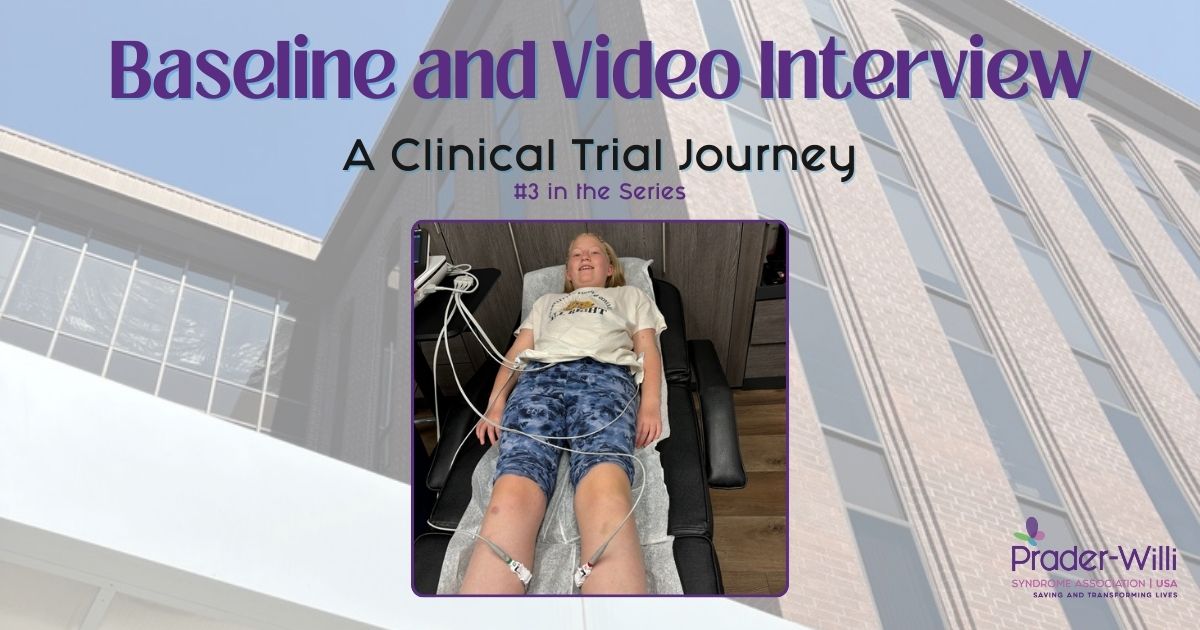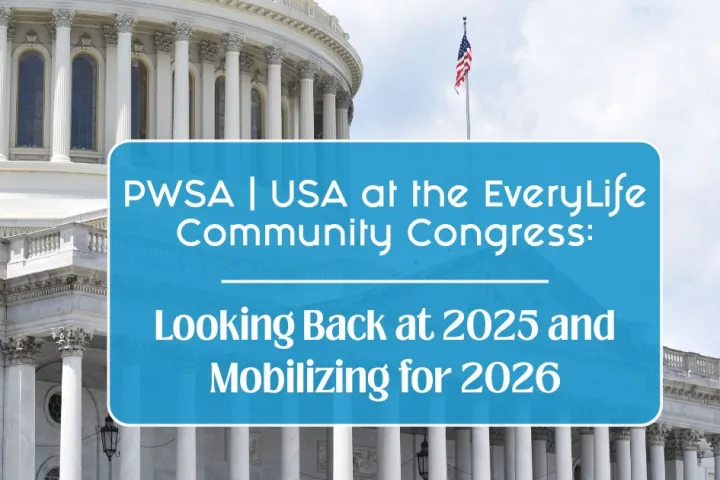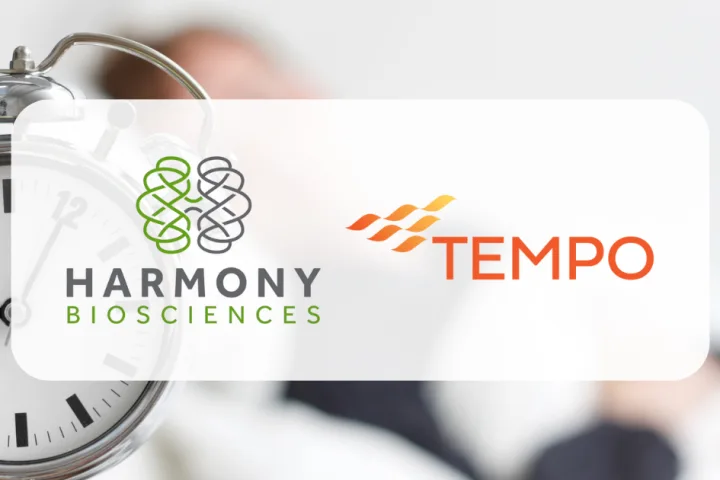contributed by Anne Fricke
(This post picks up from “The Screening Appointment” if you would like to start there.)
Baseline Appointment (1.5 hours, on-site):
Spending a night in southern California is not my idea of fun or relaxation. During our first trip, Freya enjoyed the arcade on the pier and splashing in a slightly warmer ocean than what we’re used to, while I fretted about the details of being in a large city and the potential for earthquakes. So, for our second appointment, I opted to travel down and back in one day.
We left our northern California bliss at 6:00 a.m., stopping in San Francisco for a less-than-ideal airport breakfast before heading on to LAX. Again, the trial site makes sure all the travel plans are taken care of (and paid for), so when we arrived in LA, we simply had to find our way to the driver holding a sign with our name. From there, it was a quick ride to the trial site.
Once at the trial site, there was no waiting time. We went right into our room and began the baseline appointment.
Here’s what that consisted of:
A check-in with the doctor and medical assistant about our travels, any recent significant experiences, and overall state of mind.
Lab Work: urine sample, blood draw, height and weight, EKG (to check her heart)
Questionnaires: Again, I had to work through several questionnaires, via the trial app on my phone, on Freya’s recent sleep patterns and behaviors, daytime sleepiness, emotional state, behaviors, and food seeking.
Once the lab work and questionnaires were finished, the medical assistant brought in all the supplies I would take home.
- *The complete collection of pills for the entire trial in various bottles (to be brought back at each appointment for inspection).
*A labeled chart to make it very clear what amount of pills are to be taken on what day and when to change doses. The medical assistant assured me she would email me the night before it was time to change so I would not forget. - *A list of all the medications that cannot be taken with this drug in case we end up in the emergency room or doctor’s office for other issues and they need to treat her.
- *A card with our trial doctor’s phone number for emergencies.
- *They also provide a durable bag for carrying all of this important paperwork and pill bottles, which I will use for beach days once this trial is over.
As someone who has a history of skepticism for Western medicine and has relied heavily on natural remedies for many years, one apprehension that still lingers is not being able to give Freya any herbs during this trial. Here’s how that conversation went after I learned that supplements must be pre-approved by the trial site and documented.
- Me: “Can I give her herbs?“
Doctor: “What kind of herbs?“
Me: “I have an electrolyte drink mix with greens and Ashwagandha. Can she have that?“
Doctor: “No.“
Me: “Can I give her echinacea?“
Doctor: “No.“
Me: “Olive leaf?“
Doctor: “No.”
Me: “What do I do if she gets sick?“
Doctor: “Give her the typical medicines like Tylenol or aspirin.”
Me: (Thinking those aren’t the immune-boosting herbs I was thinking of, nor are they typical treatments in my home.) “What about vitamins C and D?“
Doctor: (seemingly relieved to finally say yes) “Yes, those are fine.”
Me: (an afterthought) “What about chamomile and lavender tea before bed?“
Doctor: (probably tired of these questions but kindly answered) “Yes, she can have those.“
This was my last holdout to feeling comfortable with this trial, especially as we head into the winter season. I’ve slipped once, when her sister had Covid, but Freya is now very good at reminding me that she can’t have any tinctures or capsules of herbs. She called me in a minor panic one night while she was with her dad, because she had had a slice of pizza with “herbs” on it. I assured her those herbs were fine.
Other than taking four flights in one day to arrive home at 10:30 p.m. and typical travel snafus, the trip was smooth. We swept in, completed the lab work and questionnaires, and came home with either the medicine or the placebo. Neither we nor the doctors know. Freya is simply a number in a computer-generated system.
It was unclear to me whether we could find out afterward if she had been on the medication or not, but I’m assuming that once we head into the open-label extension where she knowingly receives Pitolisant, then it will be obvious. Or maybe it won’t. That is the point of this trial, after all, to determine if this medication makes any difference in Freya’s life with PWS and excessive daytime sleepiness.
Video Interview (30+ minutes, online):
Caregivers in this trial are asked to participate in two one-hour-long recorded video interviews – once at the beginning and once when the trial ends. This interview is done by a third party and is for viewing by trial representatives and researchers only. It was conducted via a virtual meeting platform for the medical arena while I was in the comfort of my home.
I am not someone who shies away from sharing our lives, so I went into this interview with little apprehension. The woman who interviewed me was very kind and patient. I was asked to reserve an hour, but it was closer to around 30 minutes. The questions covered the same topics of sleep patterns, behavior issues, food seeking, etc., but as it was a face-to-face interview, the questions and my responses went deep into the details of a life with PWS. In hindsight, I was not fully prepared.
Her questions probed at places I didn’t know were tender, brushed dirt away from griefs and habits I was beginning to bury. Each microscopic examination of Freya’s behavior reminded me of how “not-typical” this life is. All of the accommodations and adaptations that have become a part of our daily routine were spread across an open table, displayed in focus for me to see.
- *Freya’s diet and always being ready to adjust or prepare something different if need be.
- *My vigilance of food in Freya’s space.
- *Listening for any change in her tone of voice that may signify emotional frustration or turmoil, even if I’m not in the same room.
- *Being aware of her energy/exhaustion level and trying to plan accordingly.
- *Processing social interactions if something is bothering her, no matter how many times we may have talked about it before.
- *Having to tell every single adult in her life about PWS concerns.
Of course, these are just a few that pertain to this trial.
I was grateful when the interview was done. Grateful that I was home alone and surrounded by a forest. I rallied my dogs and goats to go for a walk amongst the trees. I don’t think I cried. I hadn’t learned anything new or realized something I wasn’t aware of. I just needed to stretch and unwind from examining all the ways I twist myself up to make this life a good one for Freya and our family. So, I walked, and I spoke into my notes app on my phone. Here’s what came from that moment:
Having to fill out questionnaires and be interviewed can be challenging because we don’t always think so much about how difficult it is, denial maybe? You put it on the back burner, then, when you have to look deeper at the situation, you realize how not typical it is, what kind of stress you live under, the compensations you make, and the underlying alertness that permeates your life – the realizations that you have tucked into the shadows because if you looked closely, you would see the scars and open wounds, the wrinkles of constant vigilance carved into flesh…
Poetry makes for dramatic writers, but perhaps parents can relate.
While heading back home on this hike, a juvenile mountain lion crossed our path – a first experience for me (and one with various levels of concern, confusion, awe, and fear). Were this the open mic stage, I would wax poetic about the significance of seeing a mountain lion during this moment. I could meander through my personal history surrounding the symbolism of the wildcat and how, for me, it represents the archetypal mother in all her glorious fierceness. The reality is that I am rarely as confident as I imagine the stalking lion to be.
But knowing that this trial could bring some relief to Freya’s life, generate new avenues for her success, or help ease some of the struggles of caregiving, and that we could be setting an easier path forward for future PWS families as those before us who trusted doctors telling them growth hormone was important…that all carries me forward through the doubts.
Do you have a clinical trial journey to share with the PWS community? Please email africke@pwsausa.org to learn more about how to share.
Share this!





 Perry A. Zirkel has written more than 1,500 publications on various aspects of school law, with an emphasis on legal issues in special education. He writes a regular column for NAESP’s Principal magazine and NASP’s Communiqué newsletter, and he did so previously for Phi Delta Kappan and Teaching Exceptional Children.
Perry A. Zirkel has written more than 1,500 publications on various aspects of school law, with an emphasis on legal issues in special education. He writes a regular column for NAESP’s Principal magazine and NASP’s Communiqué newsletter, and he did so previously for Phi Delta Kappan and Teaching Exceptional Children. Jennifer Bolander has been serving as a Special Education Specialist for PWSA (USA) since October of 2015. She is a graduate of John Carroll University and lives in Ohio with her husband Brad and daughters Kate (17), and Sophia (13) who was born with PWS.
Jennifer Bolander has been serving as a Special Education Specialist for PWSA (USA) since October of 2015. She is a graduate of John Carroll University and lives in Ohio with her husband Brad and daughters Kate (17), and Sophia (13) who was born with PWS. Dr. Amy McTighe is the PWS Program Manager and Inpatient Teacher at the Center for Prader-Willi Syndrome at the Children’s Institute of Pittsburgh. She graduated from Duquesne University receiving her Bachelor’s and Master’s degree in Education with a focus on elementary education, special education, and language arts.
Dr. Amy McTighe is the PWS Program Manager and Inpatient Teacher at the Center for Prader-Willi Syndrome at the Children’s Institute of Pittsburgh. She graduated from Duquesne University receiving her Bachelor’s and Master’s degree in Education with a focus on elementary education, special education, and language arts. Evan has worked with the Prader-Willi Syndrome Association (USA) since 2007 primarily as a Crisis Intervention and Family Support Counselor. Evans works with parents and schools to foster strong collaborative relationships and appropriate educational environments for students with PWS.
Evan has worked with the Prader-Willi Syndrome Association (USA) since 2007 primarily as a Crisis Intervention and Family Support Counselor. Evans works with parents and schools to foster strong collaborative relationships and appropriate educational environments for students with PWS. Staci Zimmerman works for Prader-Willi Syndrome Association of Colorado as an Individualized Education Program (IEP) consultant. Staci collaborates with the PWS multi-disciplinary clinic at the Children’s Hospital in Denver supporting families and school districts around the United States with their child’s Individual Educational Plan.
Staci Zimmerman works for Prader-Willi Syndrome Association of Colorado as an Individualized Education Program (IEP) consultant. Staci collaborates with the PWS multi-disciplinary clinic at the Children’s Hospital in Denver supporting families and school districts around the United States with their child’s Individual Educational Plan. Founded in 2001, SDLC is a non-profit legal services organization dedicated to protecting and advancing the legal rights of people with disabilities throughout the South. It partners with the Southern Poverty Law Center, Protection and Advocacy (P&A) programs, Legal Services Corporations (LSC) and disability organizations on major, systemic disability rights issues involving the Individuals with Disabilities Education Act (IDEA), Americans with Disabilities Act (ADA), and the federal Medicaid Act. Recently in November 2014, Jim retired.
Founded in 2001, SDLC is a non-profit legal services organization dedicated to protecting and advancing the legal rights of people with disabilities throughout the South. It partners with the Southern Poverty Law Center, Protection and Advocacy (P&A) programs, Legal Services Corporations (LSC) and disability organizations on major, systemic disability rights issues involving the Individuals with Disabilities Education Act (IDEA), Americans with Disabilities Act (ADA), and the federal Medicaid Act. Recently in November 2014, Jim retired.